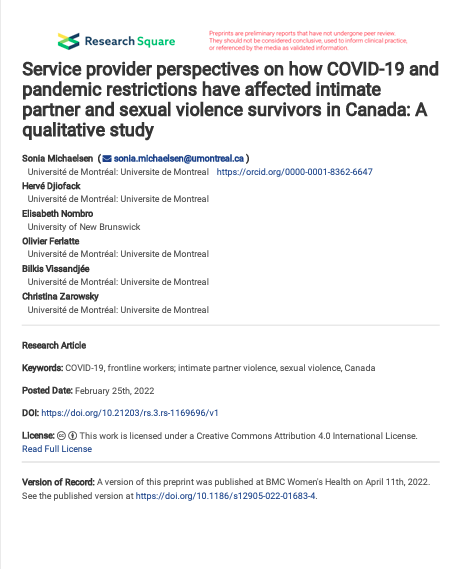Service provider perspectives on how COVID-19 and pandemic restrictions have affected intimate partner and sexual violence survivors in Canada: A qualitative study
Purpose: The COVID-19 pandemic may increase risk of intimate partner and sexual violence and make relevant services less accessible. This study explored the perspectives of intimate partner and sexual violence workers across Canada on how the COVID-19 pandemic has affected the survivors with whom they work.
Methods: Using a qualitative descriptive design, we interviewed 17 management and frontline staff of organizations supporting survivors of intimate partner and sexual violence across Canada. Results: We identified 4 themes that describe the impacts of COVID-19 on IPV and SV survivors, from the perspective of service providers: 1) No escape; 2) Isolation; 3) Tough decisions; and 4) Heightened vulnerability. These narrative findings are presented first, followed by an analysis within a social determinants of health framework. Interpreting our findings against such a framework revealed a complex interplay of social determinants, notably social support, access to services, and poverty, that produced several challenges for IPV and SV survivors during COVID-19
Conclusion: According to service providers, IPV and SV survivors in Canada faced several challenges during the pandemic, including reduced ability to escape their situations, increased isolation, increasingly complex decisions, and heightened vulnerability. Our findings demonstrate the critical need to adopt a broader, more holistic approach in tackling IPV and SV by also addressing socioeconomic issues such as poverty and marginalization.
Membres et équipe SHERPA

Bilkis Vissandjée
Professeure, Faculté des sciences infirmières, Université de Montréal

